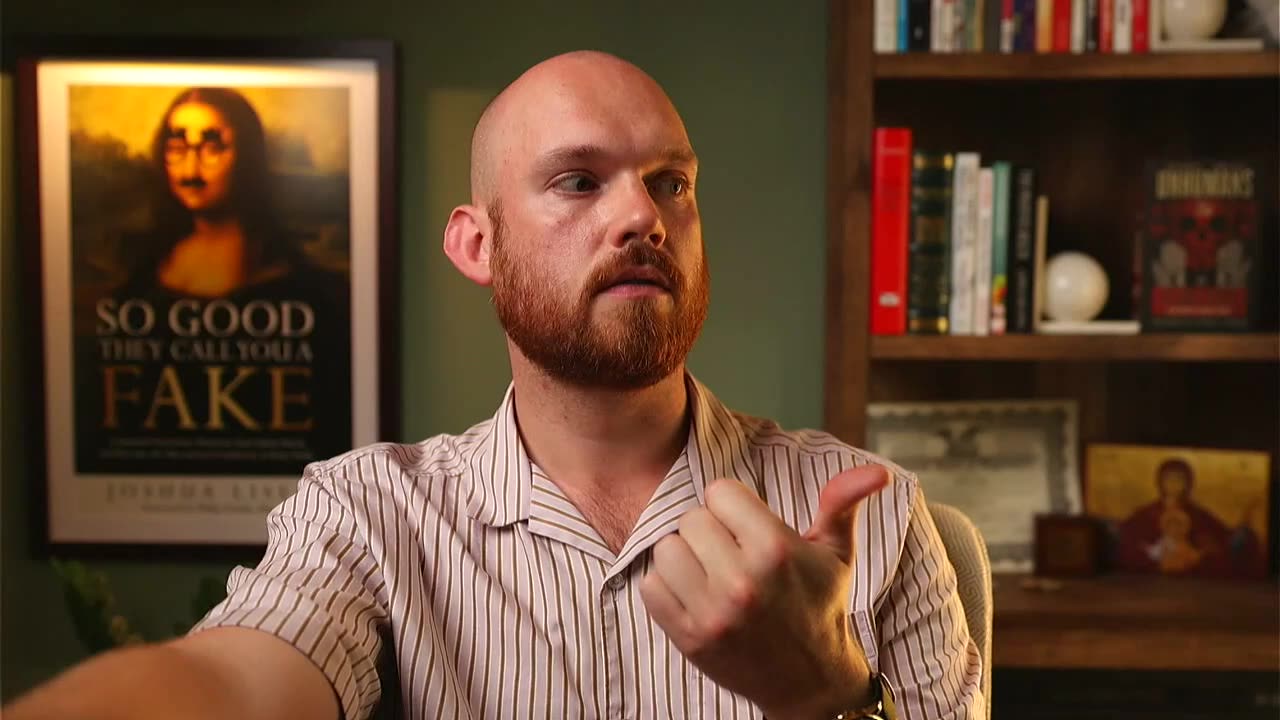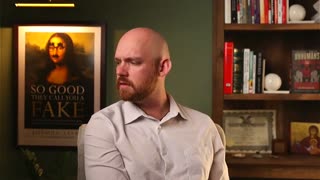Premium Only Content

Why Empathy Is a Sin: Compassion Versus Projection — Daily Persuasion with Joshua Lisec Ep. 262
Would you like to write a persuasive BOOK? One that changes minds and influencers behavior for years to come? Start with a GOLDEN book idea. Let NEW YORK TIMES bestselling author Joshua Lisec teach you: https://lisecghostwriting.com/golden
ABOUT TODAY'S EPISODE:
What if everything you’ve been told about empathy—the virtue, the strength, the goal—was a lie?
In Episode 262 of Daily Persuasion, titled “Why Empathy Is a Sin: Compassion Versus Projection,” bestselling author and master ghostwriter Joshua Lisec delivers a soul-piercing breakdown of one of the most widely accepted—and most misunderstood—concepts in modern society: empathy.
With surgical precision and rhetorical mastery, Lisec reveals that empathy, far from being a selfless virtue, is actually an act of projection—one that elevates the ego under the guise of care. According to Lisec, the phrase “you’re projecting” isn't just a pop psychology quip. It’s the heart of what makes empathy so manipulative.
“Empathy,” Lisec explains, “isn’t about understanding someone. It’s about assuming you already do—and then acting accordingly, whether they want it or not.”
Unlike compassion, which recognizes the boundaries of another person’s agency and responds with mercy, empathy assumes total access to another’s inner life—and then rewrites it. That’s why this episode’s subtitle—Compassion Versus Projection—is so essential.
Lisec contrasts empathy with sympathy and compassion, unpacking the real difference between empathy and sympathy. Where compassion offers help with humility, empathy insists “I know better than you do what you need.”
And that, Lisec says, is pride—the original sin.
In this episode, you’ll learn:
• Why empathy is a sin when viewed through a Biblical and philosophical lens
• How empathy becomes a tool for manipulation—not support
• The subtle but powerful distinction between compassion versus projection
• How popular manipulation techniques hide behind virtue-signaling emotional language
• What persuasion psychology teaches us about emotional control, coercion, and guilt
• Why many modern institutions—from HR departments to social media—weaponize empathy as a control tactic
This isn’t just theory. It’s real-world persuasion—applied. Lisec draws on years of experience in politics, publishing, and public speaking to show how emotional manipulation tactics are used in everyday interactions: from workplace drama to social justice campaigns to advertising.
If you've ever wondered how to persuade someone to do something without crossing ethical lines, this episode is a must-watch. It reveals how false empathy operates as a manipulation tactic, and why persuasion techniques rooted in compassion are far more powerful—and more moral.
As always, Lisec grounds the discussion in his deep knowledge of persuasive techniques, especially the techniques of persuasion in writing. And if you're in business, leadership, or simply care about protecting your mental clarity, you'll walk away with a sharpened ability to identify emotional coercion when you see it.
You’ll also hear:
• What empathy versus sympathy really means in both theological and psychological terms
• How to protect yourself from people who say, “I’m just trying to help,” while pushing their own agenda
• The role of projection in modern relationships and why the phrase “you’re projecting” is often painfully true
• Examples of persuasion in advertising that disguise control as care
This is not the kind of episode you’ll find in pop psychology or your HR seminar on “emotional intelligence.” This is Daily Persuasion—and Joshua Lisec doesn’t flinch. He exposes the emotional sleight-of-hand for what it is: pride disguised as help.
If you're ready to elevate your emotional intelligence, root out manipulation tactics, and replace false virtue with authentic compassion, then Episode 262 is the truth bomb you’ve been waiting for.
Because sometimes, the most persuasive thing you can say is: "I don’t know what you’re going through—but I’m here if you want to share."
-
 12:54
12:54
Daily Persuasion with Joshua Lisec
3 days agoMarjorie Taylor Greene Versus Mike Cernovich ft. Feminist Propaganda—Daily Persuasion Ep. 340
22 -
 LIVE
LIVE
BEK TV
22 hours agoTrent Loos in the Morning - 12/04/2025
226 watching -
 2:55
2:55
Canadian Crooner
2 years agoPat Coolen | Christmas Blues
25.5K1 -
 LIVE
LIVE
The Bubba Army
21 hours agoPHOTOS REVEALED FROM EPSTEIN ISLAND! - Bubba the Love Sponge® Show | 12/04/25
2,097 watching -
 28:09
28:09
ZeeeMedia
13 hours agoGovt. ‘Media Bias Offender’ Tip Line, International Pedophile Ring Arrests | Daily Pulse Ep 155
26.3K33 -
 LIVE
LIVE
Pickleball Now
3 hours agoLive: IPBL 2025 Day 4 | High-Stakes Clashes Ignite the Court at the Indian Pickleball League
239 watching -
 37:25
37:25
Nikko Ortiz
15 hours agoTerrible Military Deaths and War Crimes
16.7K10 -
 16:36
16:36
Actual Justice Warrior
15 hours agoCollege Girl DESTROYS New York Democrats
13.1K17 -
 24:14
24:14
DeVory Darkins
1 day agoTrump announces HISTORIC WIN for American families as Costco launches shocking lawsuit
33.1K70 -
 20:31
20:31
Actual Justice Warrior
1 day agoOxford Student Who Celebrated Charlie Kirk's Murder Plays Victim
7.01K10